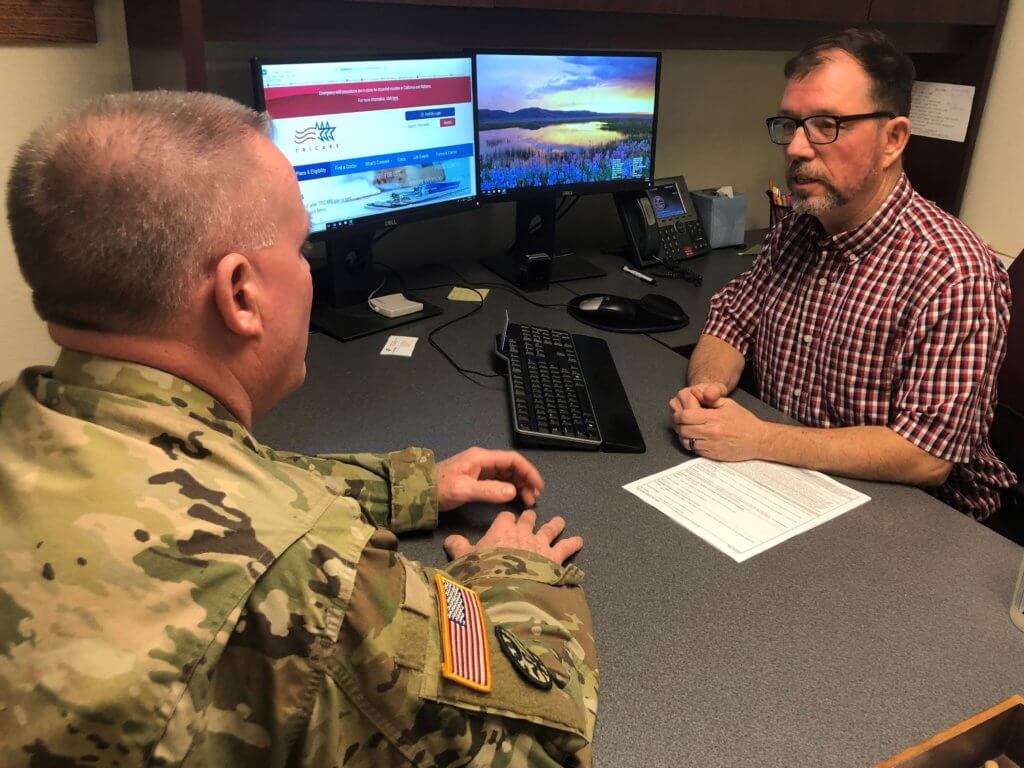TRICARE benefits, modernized equipment and parity with the active-duty service components remain at the top of several military lobbyist’s to-do list as they prepare for the 118th session of Congress.
Free health insurance is a major priority that several Military Services Organizations (MSO) plan to address this year.
“It’s a readiness issue,” said retired Col. Michael Hadley, National Guard Association of the United States (NGAUS) vice president of legislative affairs. “We also think it would help massively with recruiting and retention.”
Hadley said that vision is for Guard and reserve service members to get TRICARE for free, allowing them to see a civilian doctor of their choice. The plan would also cover dental.
A tough challenge for many commanders is trying to get everyone who has had these lingering issues suddenly medically cleared for deployment when they reach their mobilization station, said Hadley.
RELATED: ROA’s legislative priorities center on health care, employment issues
“We’re always in a reactive mode,” he said.
Giving reserve component troops TRICARE benefits “upfront” would allow them to get medical issues treated as they appear as opposed to waiting until they are set to deploy.
It’s also the health care solution supported by Chief of the National Guard Bureau Gen. Daniel Hokanson.
NGAUS and the Reserve Organization of America (ROA) plan to attack the TRICARE issue on behalf of those currently serving, but another MSO is championing the issue for retirees and veterans.
The Fleet Reserve Association (FRA) is hoping to see legislation this year that will finally clear up the gray area in reserve component retirement.
“Reserve component retirees under age 60 are not eligible for the TRICARE retiree benefit even if they are receiving retirement pay,” said John Davis, FRA’s director of legislative programs.
A bipartisan bill was introduced during the last session of Congress that would have fixed this issue, but no action has been taken since it first hit the floor in 2021.
Like all priorities, the TRICARE issue was first approved as a priority at the local or state-level. Once the priorities are brought to the national level, they are voted on and, once approved, are adopted into the organization’s list of legislative goals.
Some of these priorities, like the TRICARE issue, are relevant to the whole reserve component.
Other MSOs with more service-specific missions will be working on proposals that directly impact the reserve component.
“I have spent most of my life trying to promote the Guard and reserve,” said retired Maj. Gen. Douglas Raaberg, executive vice president of the Air & Space Forces Association (AFA).
Raaberg, whose son flies the C-40 Clipper in an Air National Guard squadron, said that AFA is pushing to ensure the military retains and acquires as much stealth technology as it can.
This means increasing the current production rate of the F-35 Lighting II and retaining and
modernizing the F-22 Raptor.
Both of those issues affect the reserve component, he said.
Like NGAUS, the AFA also supports the creation of a Space National Guard to serve as the primary combat reserve of the Space Force.
Several other military and veteran service organizations are headquartered within a few-miles radius of Capitol Hill, and the complete list of priorities is exhaustive.
Everything from a Space Force authored space policy document to tax credits for employers who hire Guard and reserve troops will be addressed and advocated for.
But the MSOs will also work together to ensure all the issues important to their constituents get addressed.
“A rising tide floats all boats,” said Matt Schwartzman, ROA’s director of legislation and military policy.
Schwartzman said the different MSOs try to work together to amplify their collective voice. This means meeting and comparing notes, as well as working together on policy papers and joint statements.
In the end, however, it still falls to the individual legislative operative, working on behalf of their MSO, to ensure that lawmakers are aware of the issues important to the reserve component.
Being known and available to members of Congress is the meat and potatoes of their work.
These lobbyists spend hours upon hours meeting with and developing relationships with lawmakers and their staffers. Sometimes it’s an informal meet and greet. Other times these groups deliver high-level briefings to key decision makers outlining what they believe is best for reserve and Guard members.
“It’s really, really important we develop trust and rapport over a long period of time,” said Hadley, who joked that a lobbyist’s worst nightmare is asking someone you don’t have a good relationship with for help.
Both Hadley and Schwartzman were adamant that another key to their success is staying out of partisan debate and being willing to work with those on both sides of the aisle to advance their goals.
Yet they must also be aware of how politics can affect their missions.
One concern for this Congress specifically is “the impact of the national debt on the decision-making process for determining what monies go where,” Schwartzman said. “This includes the CUTGO provision that was included in the House negotiated rules package.”
The work now falls to the legislative staff of these MSOs, but both Hadley and Schwartzman described their thoughts about the upcoming congress with one word.
“Optimistic.”

